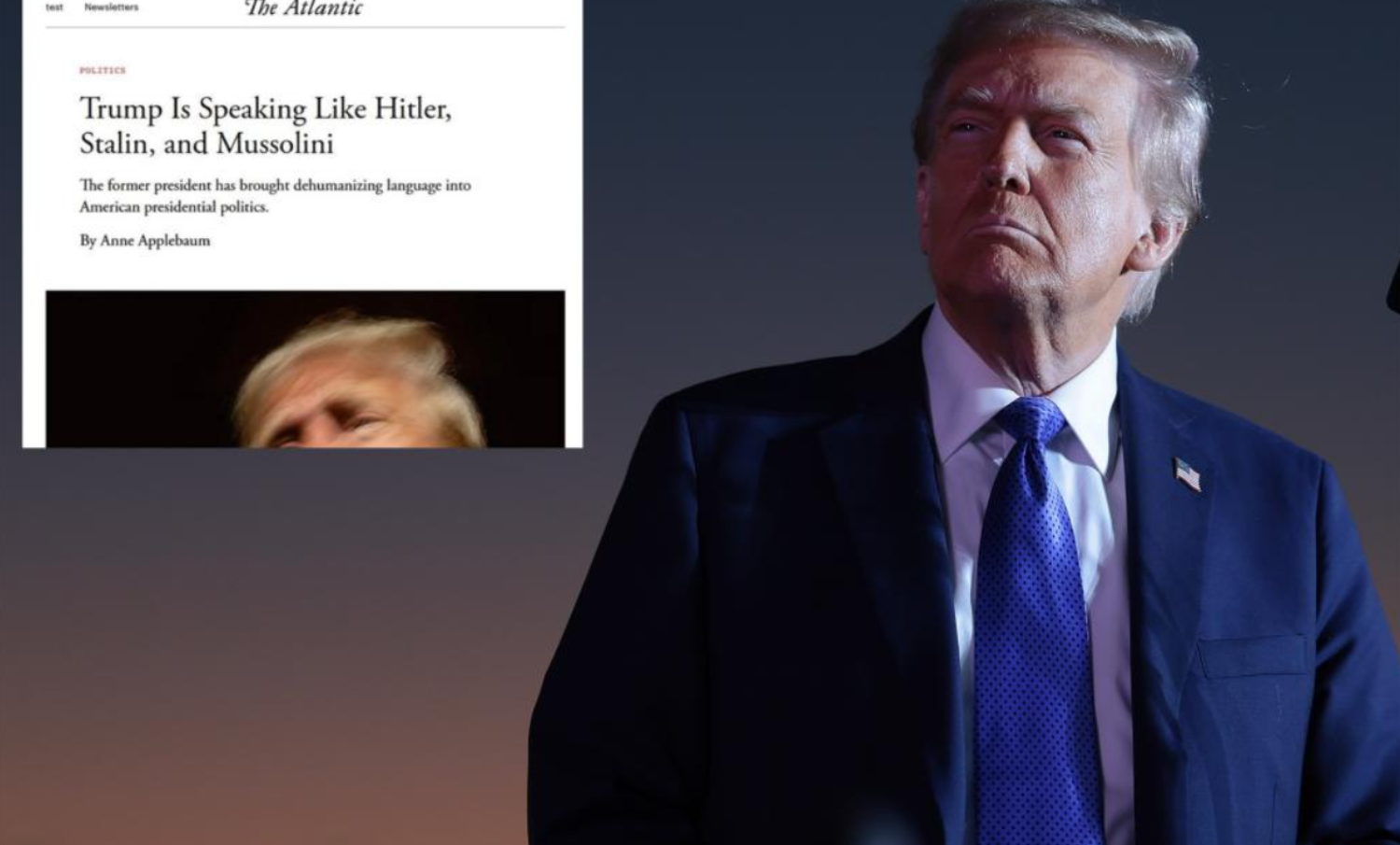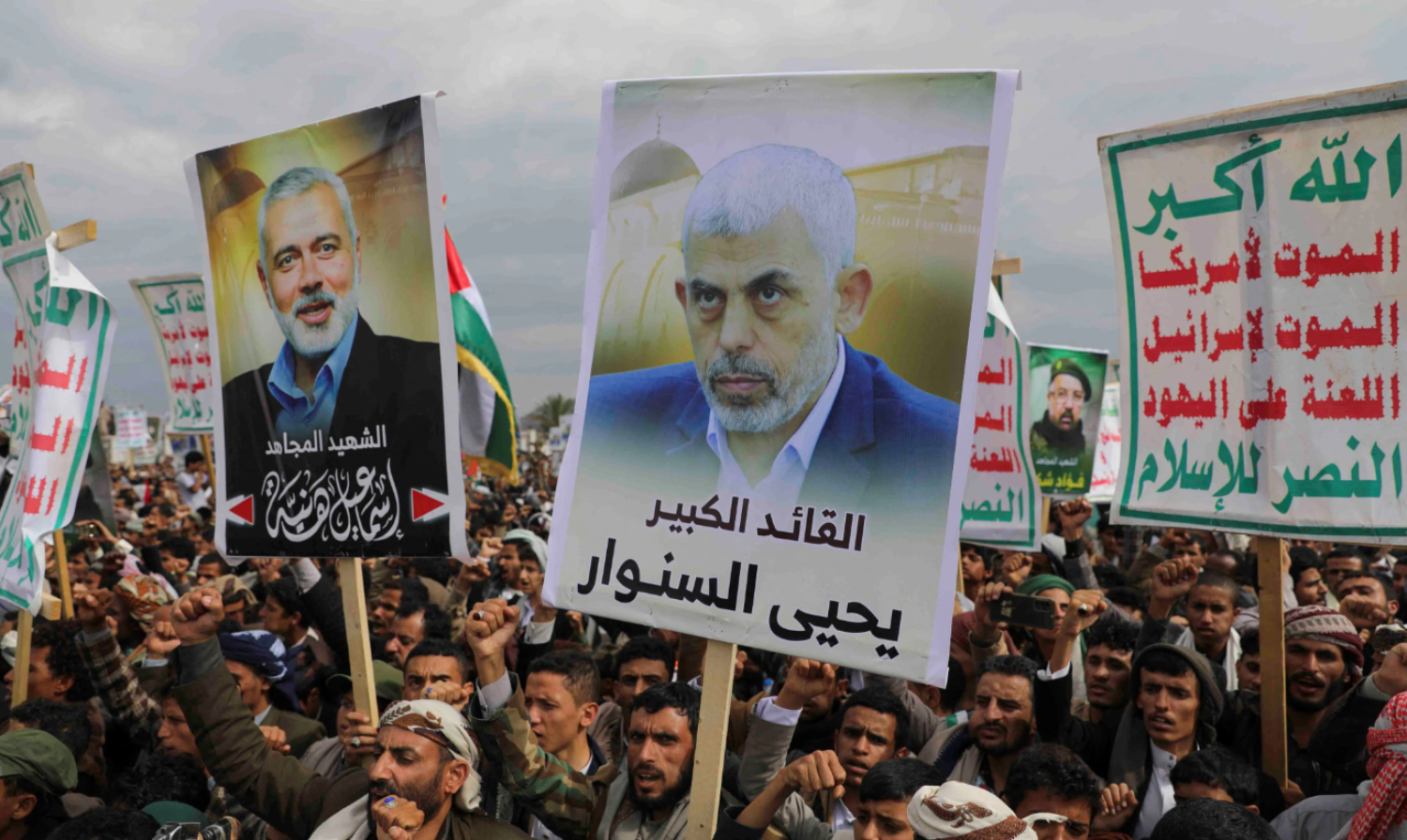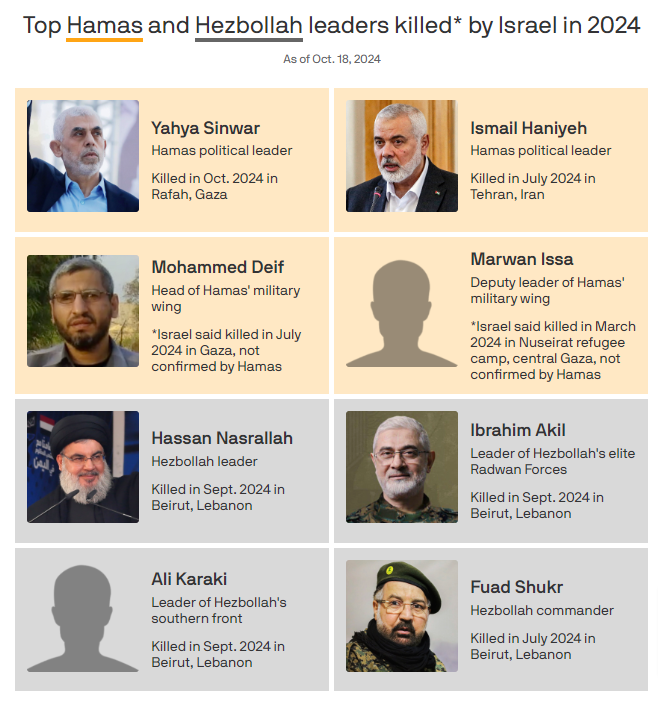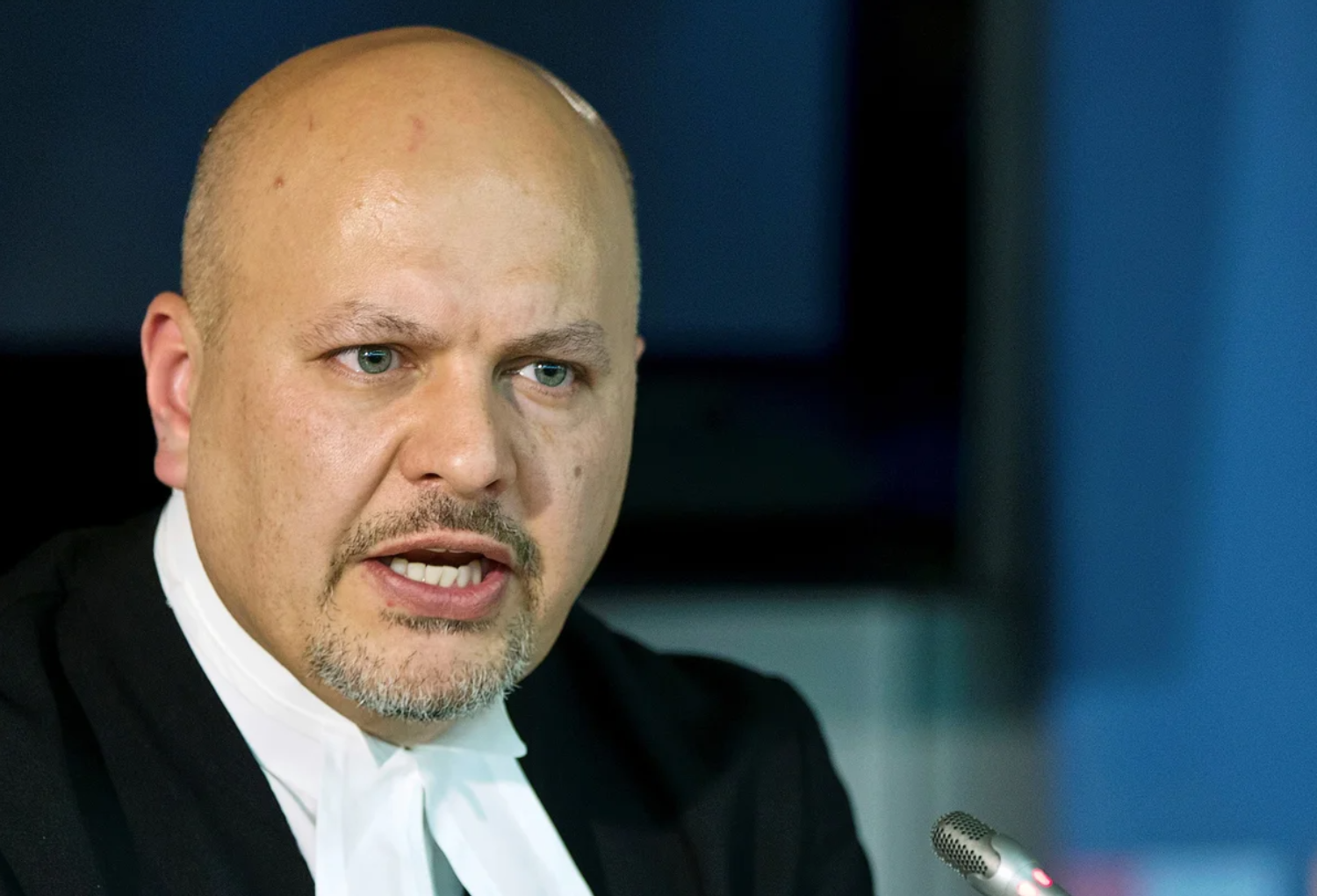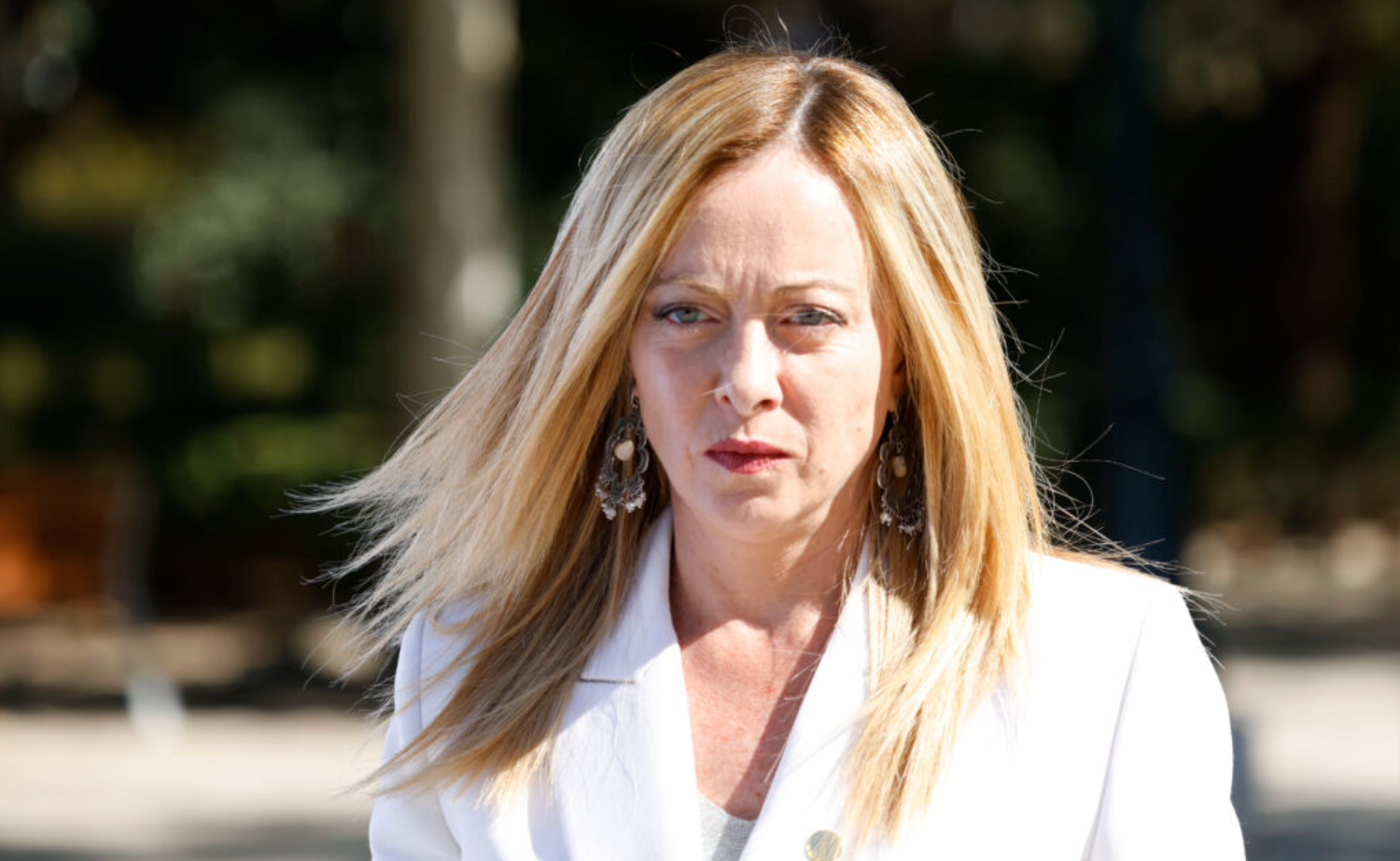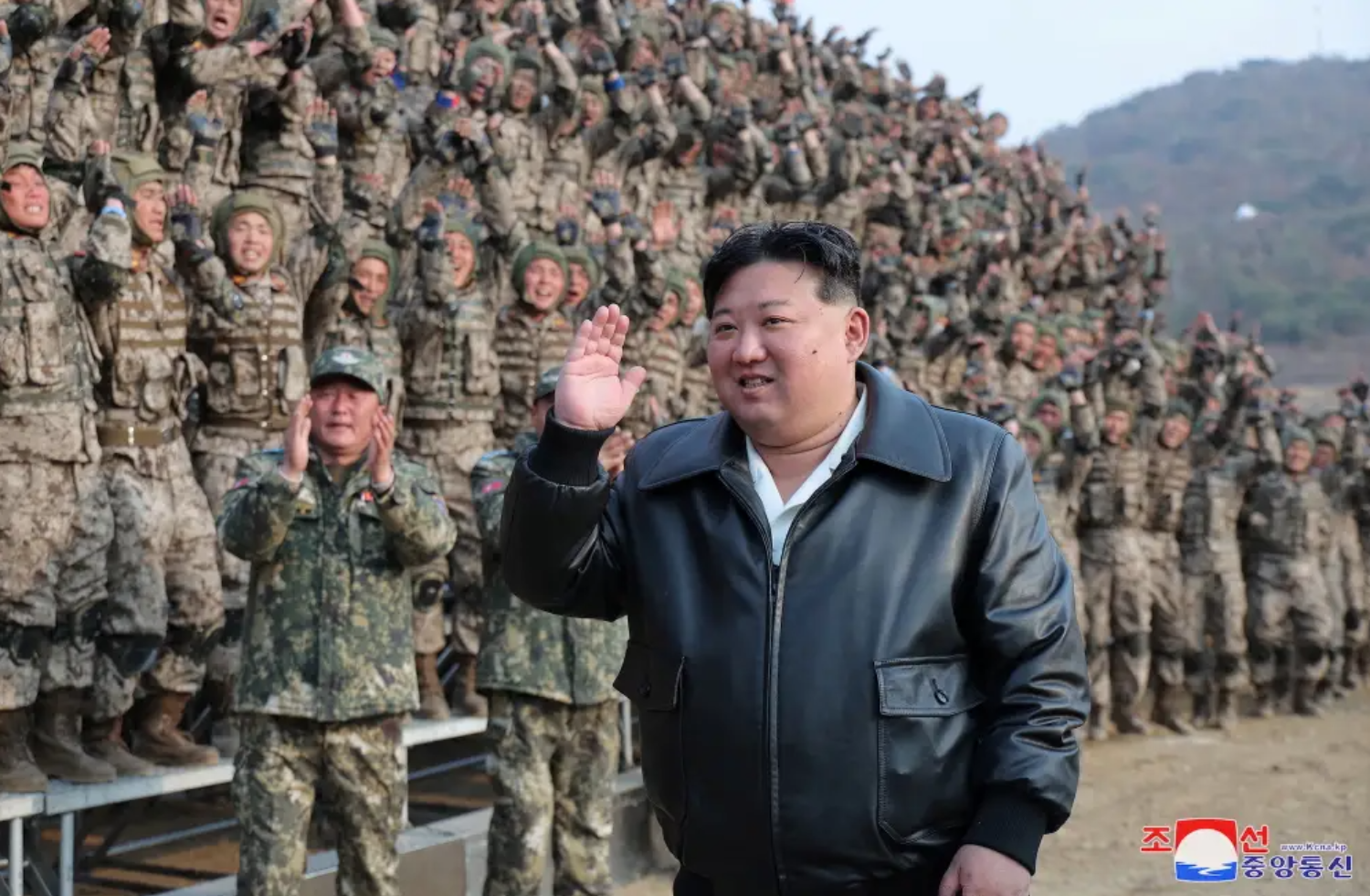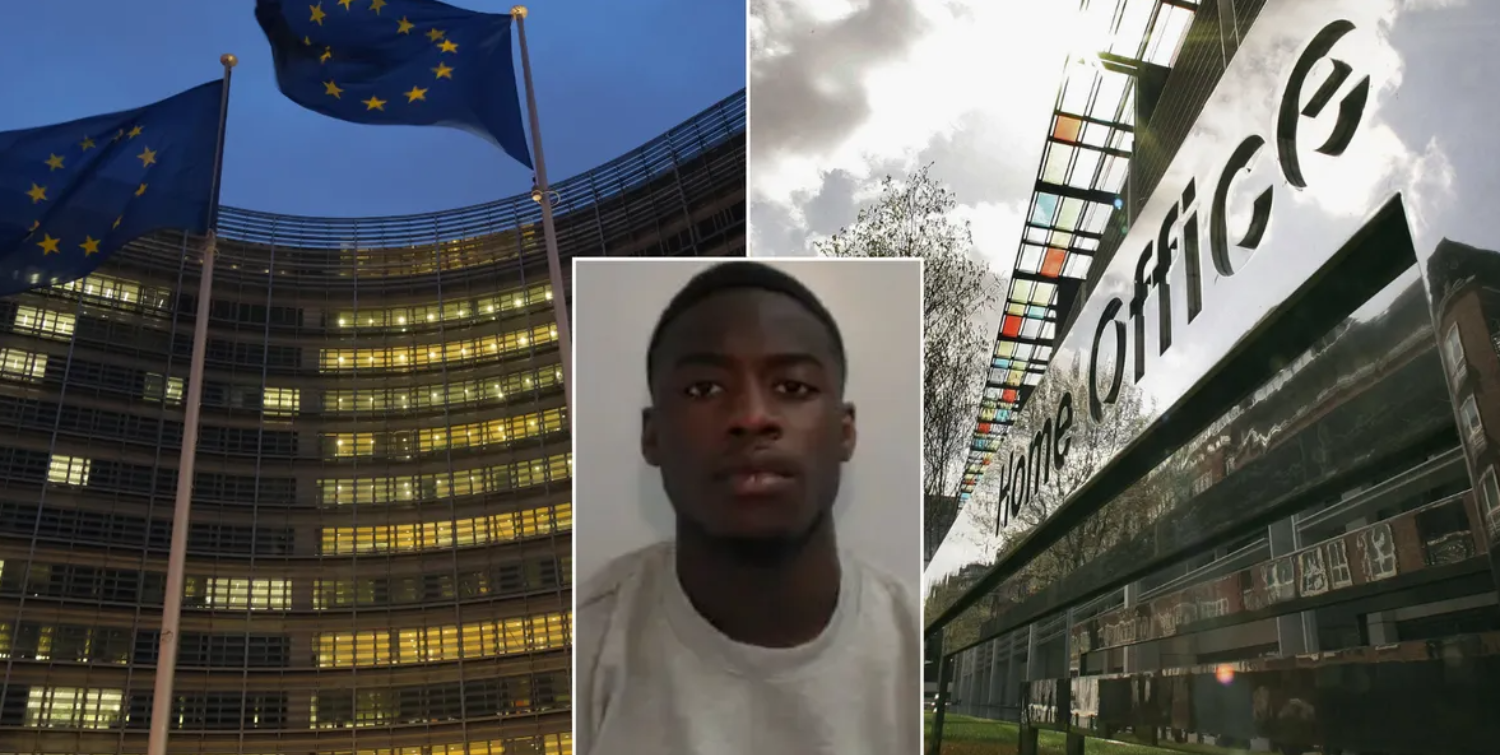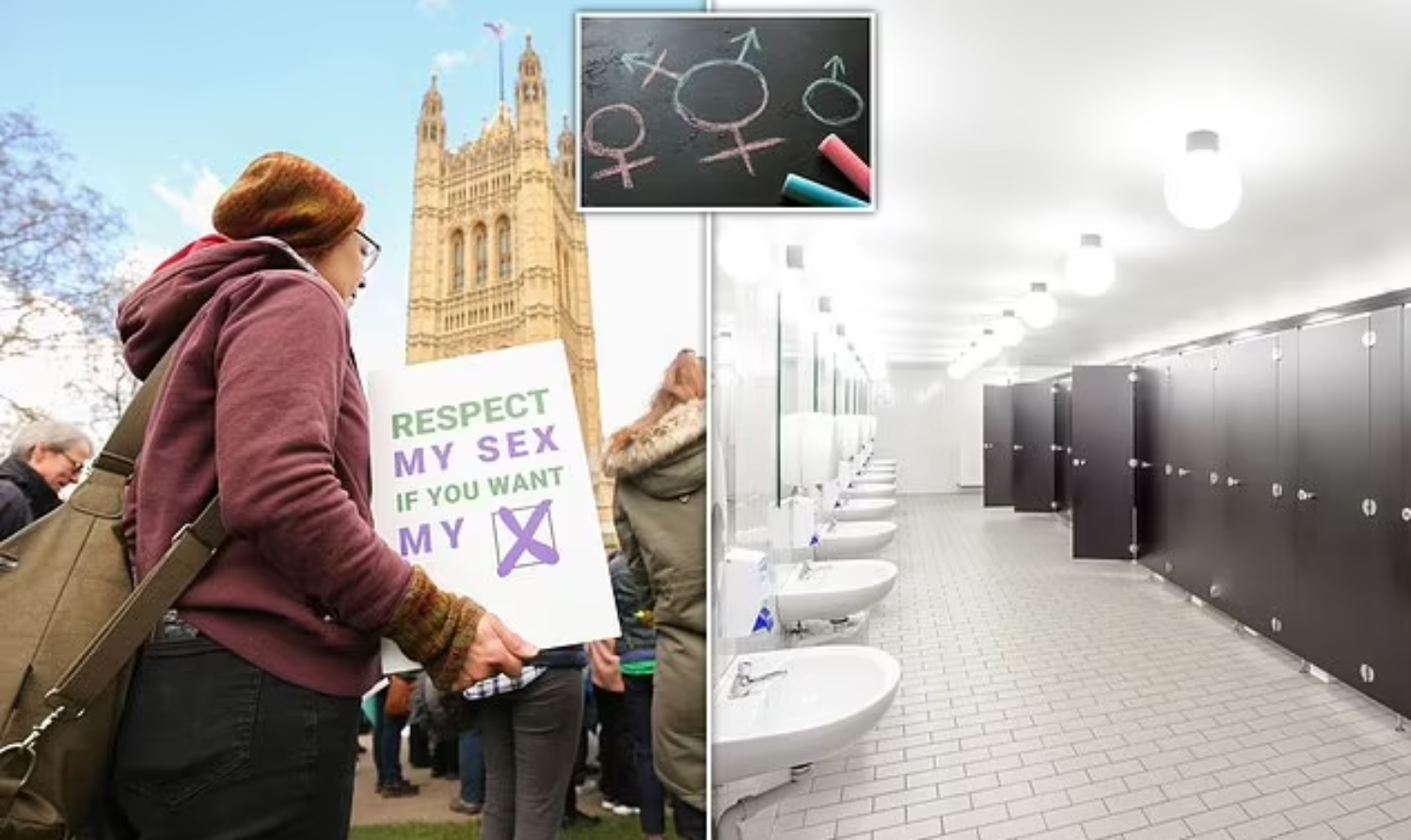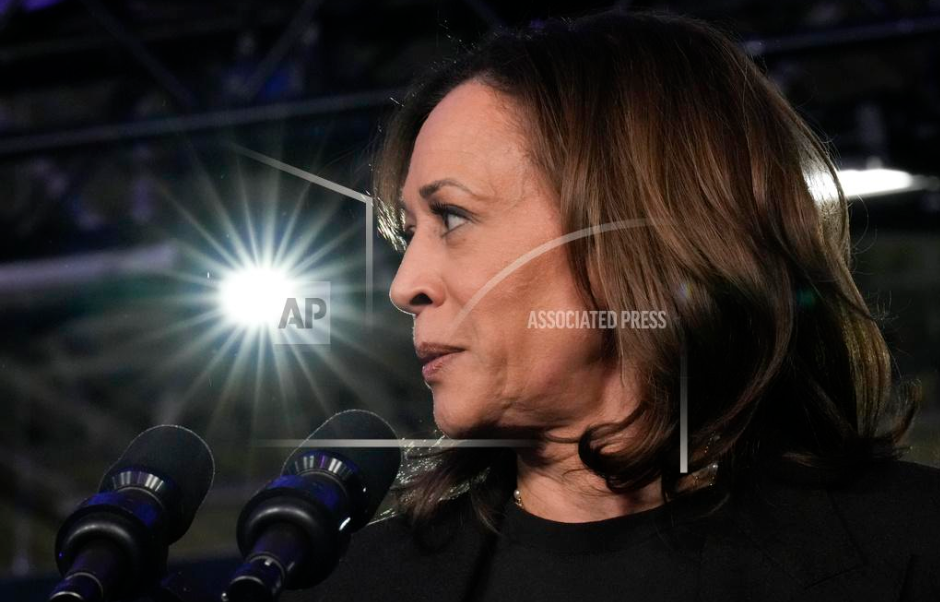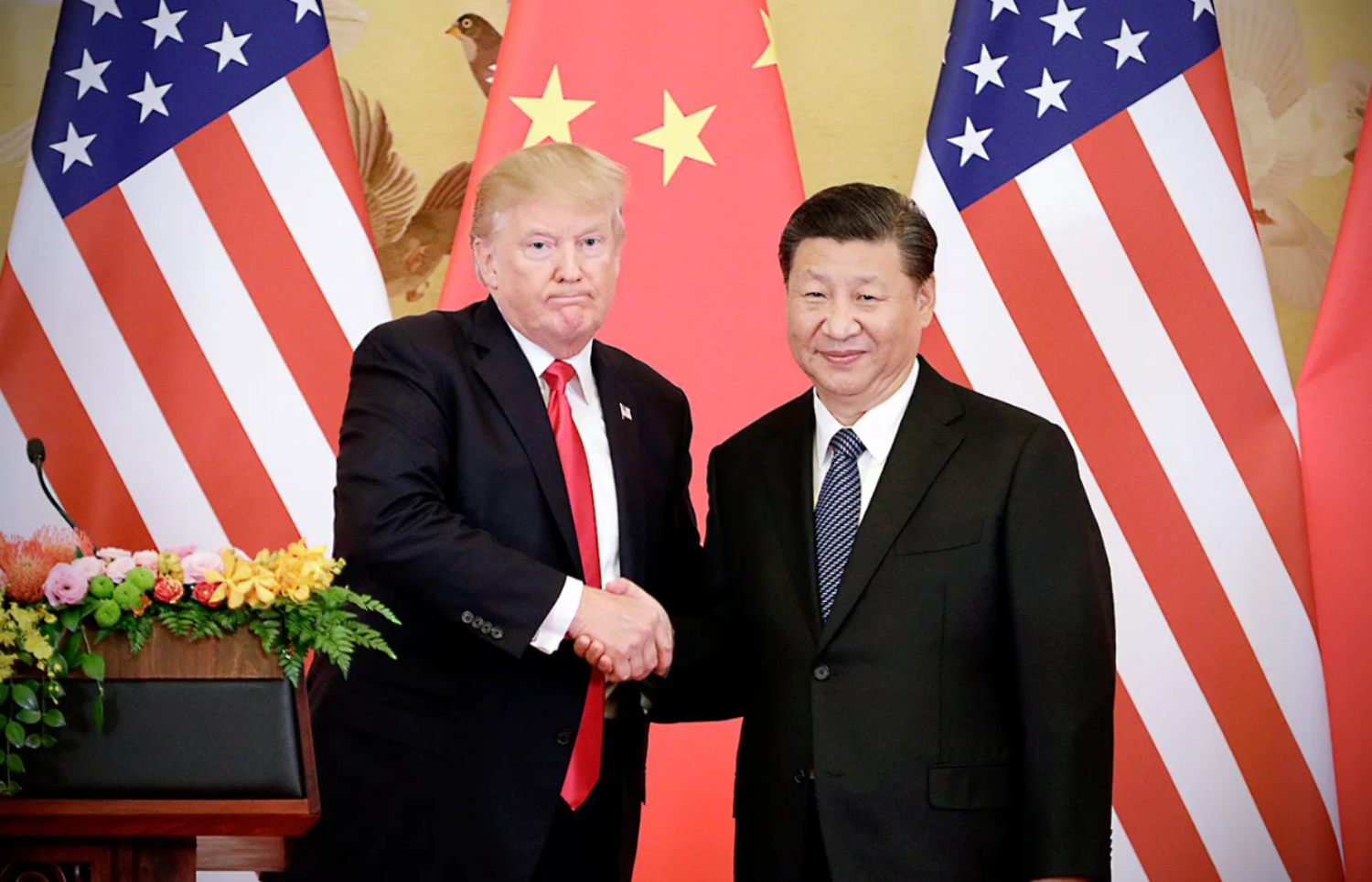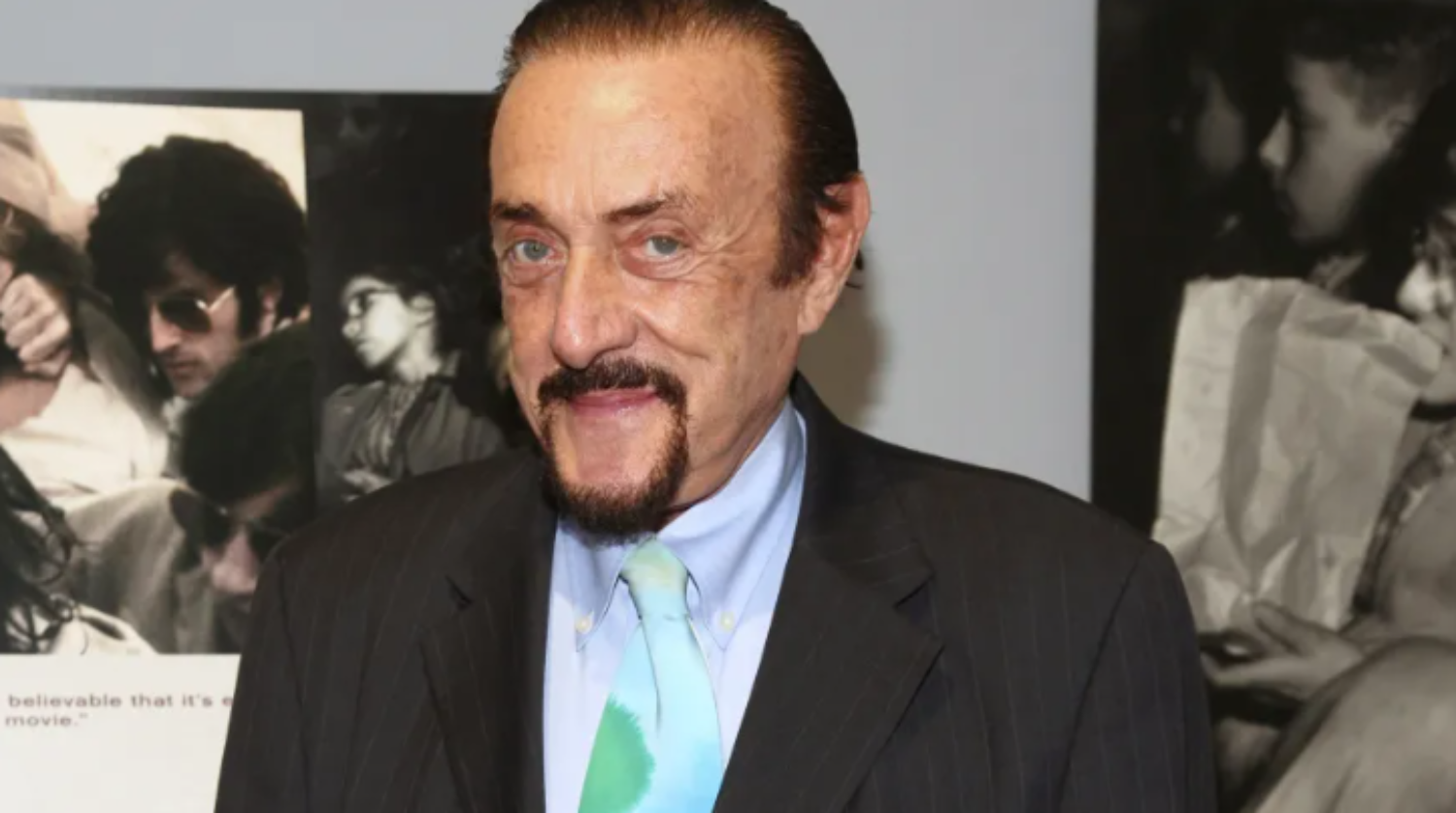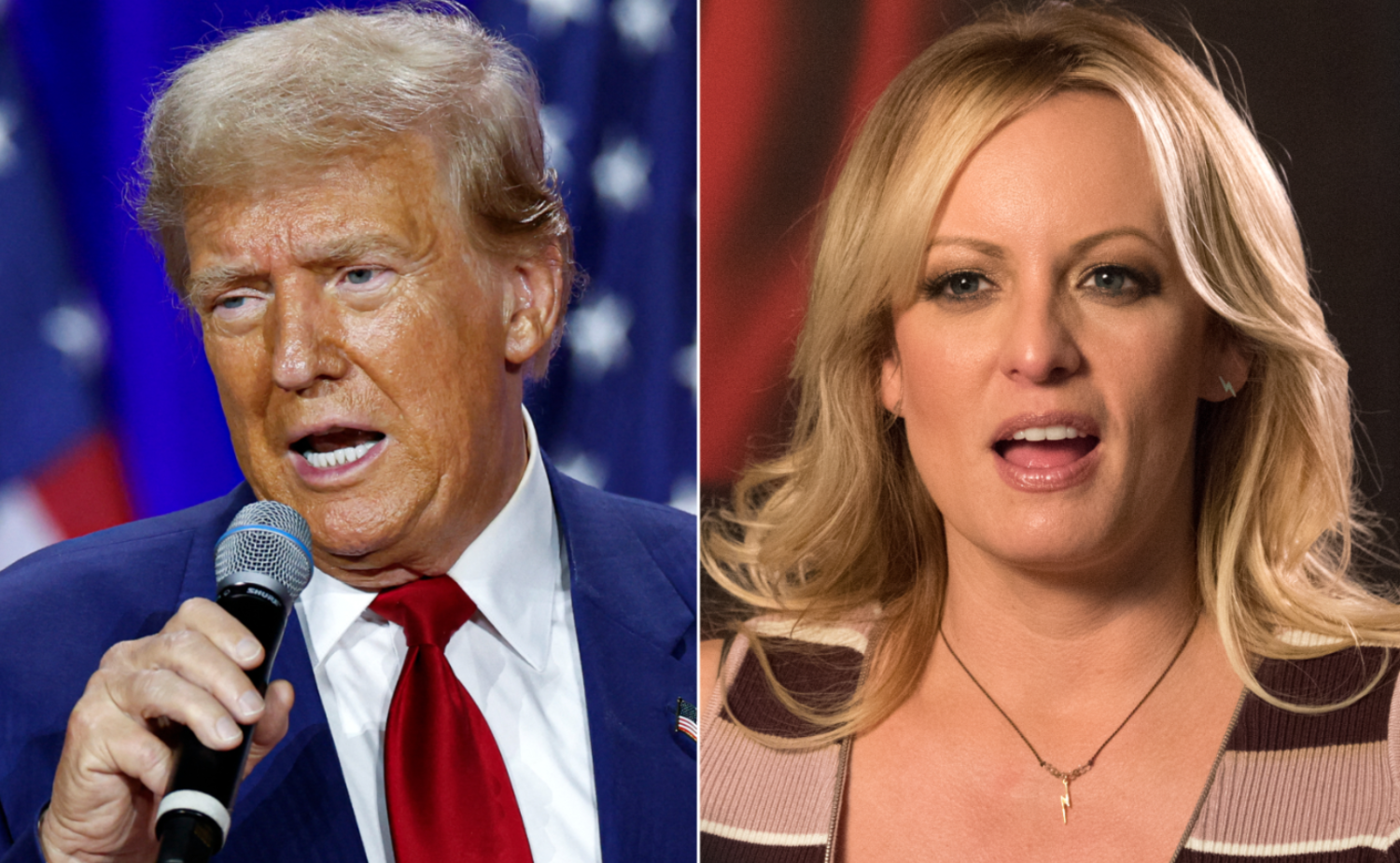-
Posts
10,736 -
Joined
-
Last visited
Content Type
Events
Forums
Downloads
Quizzes
Gallery
Blogs
Everything posted by Social Media
-
Andrew Tate, the highly controversial social media influencer, has once again stirred up a storm with his recent comments on X (formerly known as Twitter). On Saturday, Tate posted that he was praying for a death as "heroic" as that of former Hamas leader Yahya Sinwar. In his post, Tate wrote, "I can only pray for a death as heroic as Yahya Sinwar. Brave, defiant in the face of evil and dedicated to his life’s purpose. He deserves eternal rest. He earnt it." Sinwar, who orchestrated Hamas' brutal attacks on October 7, leading to the massacre of over 1,200 people and kidnapping of hundreds more, was killed by the Israel Defense Forces (IDF) on Wednesday. His leadership in Hamas, a group widely designated as a terrorist organization by numerous countries, including the United States and European Union, had made him a central figure in the group's violent actions. Tate’s comments have sparked widespread outrage, given Sinwar’s role in orchestrating such deadly attacks. Praising the death of someone involved in mass violence has drawn sharp criticism, with many condemning Tate’s remarks as irresponsible and inflammatory. Tate, a former kickboxer turned internet personality, has been known for his provocative statements, often finding himself at the center of controversy. He is currently placed under house arrest by a Romanian judge, as prosecutors investigate new and serious allegations, including sex with a minor and trafficking underage persons. However, this latest comment has reignited debates about the line between free speech and promoting harmful ideologies. Based on a report from the MSN 2024-10-22
-
The children’s commissioner for England, Rachel de Souza, has called for a nationwide ban on smacking children, joining the ranks of Scotland and Wales, where the practice is already illegal. De Souza, a former head teacher, argues that such legislation is necessary to ensure the safety and well-being of children. In an interview with *The Observer*, she stressed the importance of taking this step to prevent violence against children, saying, “A ban on smacking is a necessary step to keep children safe and to stop lower-level violence from escalating.” Currently, in England, smacking is permitted as long as it falls under the scope of "reasonable punishment," as outlined in Section 58 of the Children Act 2004. However, there is growing pressure for the UK Government to follow the examples set by Scotland, which banned smacking in 2020, and Wales, which followed suit two years later. De Souza, who has a long history of working with children, believes the time has come for England and Northern Ireland to adopt similar measures. She explained that "too many cases" have arisen where children have been harmed by those entrusted with their care. "I abhor violence of any kind against children. Children are more vulnerable than adults, so we need to ensure that they are protected, and their rights are supported," she emphasized. The National Society for the Prevention of Cruelty to Children (NSPCC) has also voiced its support for a ban, highlighting a sharp increase in concerns about physical punishment. According to the NSPCC, calls to their helpline about children being physically disciplined have more than tripled in the last year. Of the 1,451 contacts they received, nearly half were serious enough to warrant referrals to social services or the police. Anna Edmundson, head of policy and public affairs at the NSPCC, echoed De Souza’s concerns, noting that the rise in reports and the growing body of evidence shows the potential harm of physical punishment. "There is also mounting evidence that physically disciplining children can be damaging," Edmundson stated. With the safety of children as a priority, De Souza's call for a smacking ban reflects a growing recognition of the need to protect children from all forms of violence. While the debate continues, the push for a nationwide ban is gaining momentum, driven by concerns about child welfare and the desire to prevent harm before it escalates. Based on a report from the Daily Telegraph 2024-10-22
-
Labour faces criticism over potential budget cuts to a flagship farming initiative, with opponents warning that this move could breach key manifesto promises. The Government is under pressure not to reduce funding for the Environmental Land Management Scheme (Elms), which encourages farmers to adopt greener practices by rewarding efforts that improve soil health, air quality, and water pollution. Reports suggest that the Elms fund could be slashed by £100 million in the upcoming Budget, a move that has sparked backlash from senior Conservative MPs and environmentalists. Over 20 Tory MPs and peers have written to Labour’s Chancellor Rachel Reeves and Environment Secretary Steve Reed, urging them to preserve the fund. Critics argue that cutting the scheme would jeopardize Labour’s commitment to British wildlife and its broader environmental goals. The Elms initiative has been heralded as a significant post-Brexit victory, replacing the previous EU-style subsidy system and aligning more closely with national priorities. In its manifesto, Labour promised to ensure that such environmental schemes "work for farmers and nature," while also pledging to meet the goals laid out in the Environment Act, including the protection of natural habitats. However, the Treasury is grappling with a substantial £40 billion funding gap, driven by commitments to public sector pay raises, rising NHS costs, and asylum seeker accommodations. In this context, critics fear that Elms, which plays a “critical role” in preserving Britain’s wildlife, may be sacrificed. Cutting the scheme’s budget, they argue, would undermine the Government’s own environmental promises, particularly its global commitment to the 30x30 initiative, which aims to protect 30 percent of the UK’s land and seas by 2030. A source from the One Nation Group of Conservative MPs emphasized the importance of Elms in achieving these targets, noting that 70 percent of the UK’s land is agricultural. "Farmers will play a critical role in nurturing wildlife and encouraging nature restoration and will require financial support. Elms fills this critical role: by cutting it, the Government risks putting our nature targets in jeopardy," the source said. In a letter coordinated by the Conservative Environment Network, 23 Tory parliamentarians expressed concern over the potential cut, describing it as a “short-sighted act of self-harm.” They highlighted the financial challenges farmers already face due to high costs and extreme weather, warning that reducing the Elms fund would further threaten their livelihoods and harm the UK’s food security. The letter also raised doubts about the Government’s ability to meet its 2030 nature recovery goals, estimating that 239,000 fewer hectares of farmland would benefit from Elms if the budget is reduced. The signatories, which include former ministers Claire Coutinho, Helen Whately, and George Freeman, cautioned that any effort to frame the proposed £100 million reduction as merely an underspend would not be credible. They argued that the previous Tory government had intentionally left room in the budget to accommodate a full uptake of the scheme, making the cut unjustifiable. A source from the Department for Environment, Food and Rural Affairs did not deny the possibility of a reduction, citing the difficult financial decisions facing the new Government. "The Conservatives left Britain facing the worst economic inheritance since the Second World War because they refused to make the tough decisions and spent money that didn’t exist," they stated. The Government has since acknowledged that closing the £22 billion gap in public finances will require "difficult decisions," with the Chancellor expected to make a final determination in the Budget. Nonetheless, critics warn that reducing Elms funding would contradict the Government’s pledges to support both the environment and the agricultural sector, calling into question Labour's broader environmental commitments. Based on a report from the Daily Telegraph 2024-10-22
-
An article published by *The Atlantic* comparing former President Donald Trump to dictators such as Adolf Hitler, Joseph Stalin, and Benito Mussolini has stirred controversy among journalists and political commentators. The piece, titled "Trump Is Speaking Like Hitler, Stalin, and Mussolini," was penned by Anne Applebaum and published on Friday, quickly igniting fierce responses on social media. In her article, Applebaum argued that Trump’s use of dehumanizing language mirrors that of fascist regimes. "The former president has brought dehumanizing language into American presidential politics," Applebaum claimed. She went on to analyze Trump’s rhetoric, drawing historical parallels to infamous dictators. "These words belong to a particular tradition. Adolf Hitler used these kinds of terms often," Applebaum wrote, citing examples from Nazi propaganda. The article drew sharp criticism from across the political spectrum. Independent journalist Glenn Greenwald took to X, formerly Twitter, to express his disdain for the comparisons. "When you spend 8 years calling a person every bad name you can think of — including Hitler — only to see that it’s not working, so you desperately decide the only thing left for you to do is call him all the bad names at once," Greenwald wrote, mocking the nature of the headline. RealClearPolitics co-founder and president Tom Bevan joined the chorus of critics, sarcastically referring to the article as “The Atlantic with a threefer,” while Margot Cleveland, senior legal correspondent for *The Federalist*, simply responded, “When Hitler isn’t bad enough!” In defense of the article, *The Atlantic*'s national editor Scott Stossel praised Applebaum’s knowledge of authoritarian regimes. "My colleague [Applebaum] knows as much about the history of authoritarian regimes as anyone. When she says that Trump has begun using the language of Hitler, Stalin, and Mussolini with clear intentionality, pay attention." Applebaum’s article delved deeply into the rhetoric used by these dictators. She referenced Hitler’s praise in 1938 of those who "helped cleanse Germany of all those parasites who drank at the well of the despair of the Fatherland and the People," and compared this to Trump’s vilification of political opponents. In another example, she cited a 1941 Nazi propaganda poster depicting Jews as lice, with the slogan, “Jews are lice: they cause typhus,” arguing that such dehumanizing language resonates in Trump's political rhetoric. Trump’s campaign was quick to respond to the article, labeling it as another attempt by the media to vilify the former president. In a statement to *Fox News Digital*, Trump spokesperson Steven Cheung dismissed the piece as "fake news by a third-rate media outlet." Cheung criticized the tone of the article, arguing that Democrats and their allies are the ones fostering dangerous rhetoric. “There have been two heinous assassination attempts on President Trump’s life, and their violent rhetoric is directly to blame,” Cheung said. He further accused Democrats and Vice President Kamala Harris of inciting violence, calling their rhetoric "disgusting and abhorrent." Cheung concluded by asserting that Democrats are exploiting these assassination attempts for political gain, stating, "The only people trying to take political advantage of the attempted assassination are Democrats who continue to use loaded and dangerous rhetoric that have emboldened those who threaten the safety of President Trump." Based on a report from the NYP 2024-10-22
-
In an unprecedented three-month operation, Israel systematically targeted and eliminated top leaders of Hamas and Hezbollah, delivering significant blows to both groups' leadership. This decapitation strategy, which saw the killing of key figures including Oct. 7 mastermind Yahya Sinwar, has left its mark on the so-called "axis of resistance," backed by Iran. The elimination of Sinwar marked a symbolic victory for Israel, although it was not the result of a precise intelligence operation. The Israeli Defense Forces (IDF) unit that eventually killed Sinwar did not even realize his identity during the initial encounter. The soldier who delivered the fatal shot only discovered the significance of his act after the fact. Israel had been hunting Sinwar for months, with U.S. intelligence and special operations teams providing substantial support. Sinwar evaded capture multiple times before being caught by coincidence during an exchange of fire between Israeli forces and militants. This operation followed a pattern that had been escalating since the October 7, 2023, attacks on Israel by Hamas. One of Israel’s primary objectives was to eliminate those responsible for orchestrating the attack. As the conflict expanded, Israeli forces began targeting leaders of Hamas and Hezbollah, striking a significant blow to both groups' military capabilities. In mid-July, Israel achieved a major breakthrough with the assassination of Mohammed Deif, a commander of Hamas' military wing and a key figure in the October 7 attacks. This marked the first time Israel had successfully eliminated one of the main architects of the assault. Hezbollah also suffered significant losses during this period. In Beirut, an Israeli airstrike killed Fuad Shukr, Hezbollah's top military commander. The blow was one of the heaviest since the 2008 assassination of Imad Mughniyeh, Hezbollah’s previous military commander. Shortly after Shukr’s death, Israel executed another successful assassination in Tehran, killing Ismail Haniyeh, a senior Hamas political leader, in a government guesthouse. In an even more covert strike, Israel launched a clandestine attack against Hezbollah in mid-September, remotely detonating devices that killed thousands of Hezbollah members, including high-ranking officials. These coordinated attacks culminated in the assassination of Hezbollah's leader, Hassan Nasrallah, in his bunker in late September. Israel's airstrike also killed several other key figures, including Hezbollah’s southern front commander, Ali Karaki, and Brigadier General Abbas Nilforoushan of Iran’s Islamic Revolutionary Guards Corps. Nasrallah's successor, Hashim Safi al-Din, was killed within a week in another airstrike. The impact of this series of assassinations on Hamas and Hezbollah has been profound, severely disrupting their command structures. Israeli officials have claimed that much of the military leadership of both groups has been eliminated, while political figures are either dead or on the run. However, despite the damage inflicted, both groups remain resilient. Israel's military success has restored some of the deterrence it lost in the October 7 attacks. But even with many top leaders gone, Hamas and Hezbollah continue to resist and show no sign of surrendering. The challenge now lies in transforming these tactical victories into a broader strategy that secures Israel's long-term safety. White House National Security Adviser Jake Sullivan acknowledged this in a recent speech, stressing the need for "discipline, courage, and foresight" to match military operations with clear strategic goals. Though the decapitation operation has shifted the balance of power, finding an exit strategy from the ongoing wars in Gaza and Lebanon remains elusive for Israel. Key issues like securing the release of hostages, establishing governance in post-Hamas Gaza, and negotiating peace in Lebanon are yet to be resolved. Based on a report from AXIOS 2024-10-22
-
Karim Khan KC, the British chief prosecutor of the International Criminal Court (ICC), has been accused of misconduct following claims of harassment involving a female colleague. Khan, who is responsible for prosecuting war criminals, faced public scrutiny after requesting arrest warrants for Israeli Prime Minister Benjamin Netanyahu and Defense Minister Yoav Gallant over alleged crimes against humanity in Gaza. The move, which took place in May, provoked outrage, with U.S. President Joe Biden calling it "outrageous" and then-British Prime Minister Rishi Sunak deeming it "deeply unhelpful." While Khan's controversial arrest warrant requests stirred international tensions, the prosecutor was already facing internal challenges. It has been revealed that, just two weeks before his announcement, Khan, 54, was subject to an internal inquiry at the ICC in The Hague. A female court official reportedly raised concerns about Khan’s conduct, telling a colleague about her distress. Though the woman did not file a formal complaint and declined to either confirm or deny the account, the ICC’s Independent Oversight Mechanism (IOM) did not initiate a formal investigation. Instead, the IOM suggested measures to protect the rights of all parties involved. Khan strongly denied any misconduct, describing the situation as part of a smear campaign. "I absolutely can confirm there is no truth to suggestions of misconduct," he stated. He also emphasized the broader context in which both he and the ICC have been under "a wide range of attacks and threats," noting that his family has also been targeted in recent months. Khan added, "Where there are any types of reports of this nature, it is essential that they are thoroughly listened to, examined, and subjected to a proper process." The ICC's IOM released its annual report on Friday, briefly referencing a case in which an elected official allegedly breached harassment rules, although it did not name Khan. The report confirmed that the alleged victim declined to pursue a formal investigation but noted the potential for the case to be referred to an external body if necessary. Khan, a father of two, became the first Briton to hold the high-profile ICC prosecutor role in 2021. He has handled several major cases, including the ICC’s arrest warrant for Russian President Vladimir Putin in 2023, which led the Kremlin to place Khan on its "wanted" list. However, his May 20 announcement seeking arrest warrants for Netanyahu, Gallant, and Hamas leaders like Yahiya Sinwar and Ismail Haniyeh generated significant backlash. Netanyahu labeled the request a "moral outrage of historic proportions," while Gallant called it "despicable." The announcement caused further political division in the U.K., with the Conservative government launching a legal challenge against the ICC’s jurisdiction over Israeli citizens. Meanwhile, Labour leader Sir Keir Starmer's administration decided not to oppose Khan’s request, asserting that the matter was for the courts to decide—a position that was condemned by Jewish organizations in Britain. Despite the harassment allegations against Khan and the widespread controversy over his actions in office, no formal charges or investigations have been initiated. Khan reiterated his commitment to cooperating with the IOM if requested and expressed support for victims of harassment, encouraging them to speak out. Reflecting on his 30 years of work across the globe, Khan noted that no previous complaints of this nature have ever been made against him. "I stand with any victim of sexual harassment or abuse and would encourage all survivors to raise their voice," he stated in his defense, reaffirming his long-standing advocacy for a proactive approach on these issues. Based on a report from the Daily Mail 2024-10-22
-
As anti-immigration sentiment surges across Europe, political leaders are increasingly adopting migration strategies that, while less overtly inflammatory than those of Donald Trump, are edging closer to his controversial policies. Though European leaders avoid explicitly endorsing the mass deportation of millions or imposing a blanket ban on Muslims—except for perhaps Hungarian Prime Minister Viktor Orbán—the European Union (EU) is moving towards policies that bear striking similarities to those of Trump’s administration. The trend of tightening borders has gained momentum after significant electoral victories by anti-immigrant parties throughout Europe. Unlike Trump’s frequently racist and xenophobic rhetoric, European leaders have largely refrained from such inflammatory language. However, when it comes to migration policy itself, the gap between the EU and Trump’s approach is not as wide as it may seem. Recent meetings in Brussels revealed European leaders engaging in long discussions about faster deportations, migrant processing centers, and even "hybrid warfare," a term they use to describe the tactic of hostile powers using migrants to destabilize Europe. The Dutch anti-immigrant and anti-Islam populist leader Geert Wilders summed it up when he declared, “A new wind is blowing in Europe,” following a gathering of far-right figures in Brussels. His sentiment highlights how far Europe's political mainstream has shifted on the issue of migration in just a few years. Since the 2015 migration crisis, when over a million refugees, predominantly fleeing the Syrian civil war, arrived in Europe, the EU has steadily hardened its stance. Former German Chancellor Angela Merkel's famous "we can do it" message in welcoming refugees has given way to the bloc now working actively to prevent new arrivals from reaching its borders. In 2023, fewer than 300,000 migrants made it to the continent, and this year, the EU’s border agency, Frontex, estimates only 160,000 migrants will reach European shores. In response to growing domestic pressures, several European countries have introduced new border measures. Poland recently halted the processing of asylum requests from migrants crossing from Belarus, citing national security concerns. Meanwhile, German Chancellor Olaf Scholz reinstated border checks this summer after a Syrian man carried out a knife attack, killing three people and injuring several others. Six other European nations, including France, Austria, and Italy, have also introduced new border control measures aimed at stopping the flow of undocumented migrants. Experts suggest that if Trump were to return to the White House, it could embolden European leaders who are already leaning toward a stricter migration stance. Alberto-Horst Neidhardt, head of European migration and diversity at the European Policy Centre, remarked, “Certainly, many member states that have pushed for a restrictive approach to migration will be watching the American elections very closely. This will give [EU countries pushing for more restrictions] further bargaining chips to push for their preferences both in the U.S. as well as in the EU.” The growing talk of "return hubs" and migrant "processing centers" in EU discussions mirrors some of Trump’s policies, such as his "Migrant Protection Program" (also known as "Remain in Mexico"). This controversial program, implemented in 2019, required thousands of non-Mexican migrants to remain in Mexico while their U.S. asylum applications were processed. The EU is now exploring similar approaches. In a recent letter to EU leaders, European Commission President Ursula von der Leyen supported the creation of “return hubs”—facilities to hold migrants in non-EU countries. Italian Prime Minister Giorgia Meloni has even begun establishing processing centers in Albania, a move that echoes Australia’s controversial practice of processing asylum seekers in Papua New Guinea. Meanwhile, France is pushing for changes to EU law that would make it easier to deport migrants to third countries. The EU already boasts an extensive network of physical barriers, with thousands of kilometers of fencing along its external borders, far surpassing Trump’s heavily publicized but incomplete border wall with Mexico. Some analysts warn that the normalization of this tough migration rhetoric across Europe is driving the policy direction toward the hard right. Whether or not Trump returns to power, Europe seems to be quietly mirroring his stance on migration, reinforcing border controls, and exploring increasingly restrictive methods to manage incoming migrants and refugees. Based on a report from Politico 2024-10-22
-
South Korea has urgently called for the immediate withdrawal of North Korean troops allegedly being trained in Russia to fight in Ukraine. The South Korean government summoned Russian ambassador Georgiy Zinoviev to express their concerns over reports that around 1,500 North Korean soldiers, including members of the special forces, have already arrived in Russia, according to Seoul's intelligence agency. Although Mr. Zinoviev stated he would convey South Korea’s concerns to Moscow, he reiterated that the cooperation between Russia and North Korea is "within the framework of international law." However, he did not confirm whether North Korean soldiers had indeed been sent to fight alongside Russia’s military forces. Pyongyang has remained silent on the matter, neither confirming nor denying the allegations. The growing cooperation between Moscow and Pyongyang follows a security pact signed between Russian President Vladimir Putin and North Korean leader Kim Jong Un in June. The agreement pledges mutual assistance between the two nations in the event of any "aggression" against them. This pact is seen as a significant deepening of military ties between the two countries, further evidenced by Putin's recent introduction of a bill to ratify the agreement. NATO Secretary-General Mark Rutte described the alleged deployment of North Korean troops to Russia as a "significant escalation" in the Ukraine conflict. In a phone conversation with Rutte, South Korean President Yoon Suk Yeol urged NATO to explore "concrete countermeasures" and vowed to strengthen security cooperation with Ukraine, NATO, and other allies. British Foreign Minister David Lammy, who is currently visiting Seoul, also weighed in, condemning Russia's actions as "reckless and illegal." He reaffirmed that the UK would work closely with South Korea to develop a coordinated response. The United States and Japan have similarly voiced strong disapproval of the growing military ties between North Korea and Russia. Experts warn that North Korea’s involvement in the conflict could have far-reaching consequences. Moon Seong-mok of the Korea National Strategy Institute noted that this development "could open the door for greater international participation in the conflict, potentially drawing in more countries." He added that increased sanctions and pressure on both Russia and North Korea are likely, but it remains uncertain whether North Korea's involvement will yield any real benefits for either country. Based on a report from the BBC | X 2024-10-22
-
A controversial US startup, Heliospect Genomics, is offering wealthy couples the ability to screen embryos for intelligence using cutting-edge genetic prediction technology. The company, which has reportedly worked with over a dozen couples undergoing IVF, markets its services for up to $50,000 for 100 embryos, according to undercover footage. The company's claims include offering the ability to help parents select embryos based on predictions of higher IQ and other traits such as height, risk of obesity, and mental illness. In one recording, Heliospect representatives boasted their technology could result in an IQ increase of more than six points. The ethical implications of such a service have sparked concerns among experts. "Is this a test too far, do we really want it? It feels to me that this is a debate that the public has not really had an opportunity to fully engage in at this point,” said Dagan Wells, a professor of reproductive genetics at the University of Oxford. Katie Hasson, associate director at the Center for Genetics and Society in California, echoed this sentiment, warning that such practices normalize the idea of "superior" and "inferior" genetics. "The rollout of such technologies reinforces the belief that inequality comes from biology rather than social causes," she said. Heliospect has acknowledged that while selecting embryos based on predicted IQ is legal in the US, where regulations around embryology are less stringent, it is not yet a commercially available service in the country. In the UK, where fertility treatments are heavily regulated, selecting embryos based on traits like IQ is not permitted. The company's CEO, Michael Christensen, expressed a more optimistic vision of the future, claiming that genetic selection could allow parents to have "disease-free, smart, healthy" children. Christensen also speculated on future advancements in genetic selection, including the potential for creating embryos on a massive scale to offer parents even more options. During a November 2023 video call, Christensen boasted that "everyone can have all the children they want and they can have children that are basically disease-free, smart, healthy; it’s going to be great." The company's methods involve analyzing genetic data provided by parents through a process called "polygenic scoring," which predicts the traits of individual embryos. Heliospect also reportedly gained access to the UK Biobank’s genetic data, a resource funded by British taxpayers. While the Biobank data is only intended for use in projects deemed to be in the public interest, Heliospect claims their work falls within this scope, stating that they are in “stealth mode” ahead of a public launch. The emergence of Heliospect's embryo screening services has intensified discussions around the ethics of genetic selection. While the company insists that it operates within the law, leading bioethicists like Professor Hank Greely of Stanford University have raised concerns about the potential consequences. “UK Biobank, and the UK government, may want to think harder about whether it needs to impose some new restrictions,” Greely suggested. Heliospect, however, stands by its commitment to scientific rigor and promises to address public concerns through education and policy discussions. As the debate over genetic enhancement technology continues, the moral and medical questions surrounding embryo screening for traits such as IQ remain largely unresolved. For now, Heliospect's services are available only to a select few, but their emergence signals a future in which such choices could become increasingly common, raising difficult questions about the role of genetics in shaping human potential. Based on a report from the Guardian 2024-10-22
-

Thai worker killed by leftover ammunition in Israeli orchard
Social Media replied to snoop1130's topic in Thailand News
Unsubstaniated claims and way off topic posts removed @Neeranam Thai worker killed by leftover ammunition in Israeli orchard -
During a Pennsylvania campaign stop on Sunday, Donald Trump took an unconventional approach, working behind the counter at a McDonald’s and reigniting a peculiar debate about Kamala Harris’s past. The former president, known for his showmanship on the campaign trail, ditched his suit jacket, put on a black and yellow McDonald’s apron, and proceeded to fry batches of french fries, a task he said he had wanted to do "all my life." Kamala Harris, who is currently running as the Democrat candidate for vice president, marked her 60th birthday on the same day as Trump's campaign appearance. She spent the day campaigning in Georgia, participating in two worship services just outside of Atlanta. The fast-food moment, though seemingly lighthearted, highlighted the often bitter exchanges between the two political figures, with Trump's jab adding an odd twist to the usual campaign rhetoric. His unfounded statement about Harris’s work history at McDonald’s raised eyebrows, particularly because Harris has consistently referred to her past experiences working at the chain, which she discussed as a way to connect with everyday Americans. However, as with many of Trump’s public statements, this one triggered further scrutiny and debate, drawing attention away from the policy issues central to the campaign. Trump’s public persona and willingness to engage in unscripted, often bizarre stunts have long been a hallmark of his political style. The McDonald's stop was yet another example of this, serving to entertain his supporters while igniting political conversations, however unconventional they may be. Based on a report from the Standard 2024-10-21
-
Think tanks and campaign groups in the UK are sounding the alarm on the growing threat posed by scientific racism, a dangerous ideology that uses flawed science to justify racial inequality. Recent investigations have revealed that these ideas are gaining traction and could potentially seep into mainstream discourse, posing a significant risk to minority communities. Scientific racism claims that biological differences, rather than social factors, are responsible for inequalities among racial groups. By using research to validate notions of genetic superiority, proponents of this ideology often push back against efforts to improve diversity and combat structural racism. In recent years, rightwing politicians have co-opted these beliefs to advocate for strict immigration policies and the expulsion of migrants from western nations. Despite the warnings, national institutions in the UK, particularly within the health sector, have been slow to respond. According to the Institute of Race Relations, the Race Equality Foundation, and Race on the Agenda, attempts to bring attention to the resurgence of race science have been largely ignored. Liz Fekete, director of the Institute of Race Relations, voiced her concerns, stating that for years, Black health campaigners and civil rights organizations have been raising their voices about this issue without much acknowledgment from powerful institutions. She pointed out that scientific racism poses a direct threat to NHS users from minority backgrounds. A recent investigation conducted by *The Guardian* in collaboration with anti-racism campaign group Hope Not Hate has escalated concerns. The investigation uncovered an international network of academics and activists working to normalize scientific racism, with financial backing from a wealthy US tech entrepreneur. This network allegedly obtained genetic data from the UK Biobank, which contains genetic information from 500,000 volunteers. The revelation has heightened the urgency for action, with campaign groups warning that "today’s fringe ideas could be tomorrow’s mainstream." They call for immediate steps to hold accountable those promoting these dangerous ideologies. Fekete added that the mainstreaming of such fringe ideas has already begun, citing the cultural wars that mock efforts to address racism, while structural and systemic racism continue to rise. She specifically noted how anti-Muslim and anti-migrant rhetoric, echoing the sentiments of controversial figures like Enoch Powell, has already become more acceptable in mainstream culture. Ideas rooted in cultural racism, which posit a hierarchy of cultures with western civilization at the top, have made their way into public discourse—setting the stage for scientific racism to follow. The dangers of this ideology spreading into more mainstream thought are not without precedent. Fekete referenced the secret eugenics conferences held at University College London (UCL), exposed in 2018, as well as the increasing prominence of the "great displacement theory" in western politics. These events demonstrate how racist and eugenicist ideas can migrate from fringe communities to positions of influence, aided by the growing popularity of "anti-woke" and populist right-wing rhetoric. Health and policy institutions are now being urged to take the threat of scientific racism seriously and to address the challenges it poses to equality and diversity. According to think tanks, failure to act now could lead to the further erosion of progress in dismantling systemic racism, and the legitimization of dangerous ideologies that harm minority communities. The warning is clear: the UK must wake up to the insidious influence of scientific racism before it gains even more traction in public life. Based on a report from the Guardian 2024-10-21
-
William George, a Belgian national and convicted gang member involved in the killing of 18-year-old Abdul Hafidah, cannot be deported from the UK despite a six-year legal battle led by Home Office officials. George, who was sentenced to 12 years in prison for manslaughter in connection with Hafidah’s brutal death, has been shielded from deportation due to EU regulations that were in effect at the time of his conviction. Hafidah was murdered in Manchester in May 2016, in an attack witnessed by commuters during rush hour. A member of the Rusholme Crips gang, Hafidah was hunted down by members of the rival AO gang after straying into their territory in Moss Side. He was beaten, struck with a car, and stabbed in the neck. George played a key role in the attack, confronting Hafidah and allowing others to catch up to him, ultimately leading to his death. Seven men were convicted of murder, while George and two others were convicted of manslaughter. Despite George's conviction and his association with the notorious AO gang, his deportation to Belgium has been blocked due to regulations stemming from EU directives. George, who moved to the UK at the age of eight, was served with deportation papers in 2018, citing a “real risk” of reoffending. However, EU nationals who have lived in the UK for a significant period are protected from deportation unless it can be shown that they pose an “imperative” threat to public security. In the latest development of the case, the Court of Appeal upheld an earlier immigration court decision quashing George’s deportation. The court ruled that George did not meet the strict criteria for removal under the EU regulations, which were in force prior to Brexit. Lord Justice Nicholas Underhill stated that as a European Economic Area (EEA) national, George was entitled to the highest level of protection against removal. The court concluded that there had been no legal error in the previous decision and that George, who has shown remorse and expressed no intention of reoffending, does not pose a sufficient risk to justify deportation. The immigration tribunal ruling emphasized George's remorse and efforts to rebuild his life after serving time in prison. Judge Bruce, who presided over the case, described George as a once-promising footballer with no prior criminal record. He had been working toward a semi-professional football career, securing a contract with Morecambe FC and a scholarship at Lancaster College before becoming involved in the killing of Hafidah. His life changed drastically after the crime, and he has since spent almost seven years in prison. The court acknowledged that George had learned a hard lesson about the consequences of violence and believed his claims of rehabilitation. Lord Justice Underhill reiterated the gravity of George’s actions but noted that deportation is not automatically linked to the severity of the crime. Instead, it depends on whether the individual poses a serious ongoing threat to public security. In George’s case, the court found no compelling evidence that he did. "Nothing in our decision means that we take anything but the most serious view of Mr George’s conduct. But he has been punished for that conduct by the sentence of 12 years’ imprisonment which he received,” Underhill said, adding, “The judge, after carefully weighing all the evidence, found that he does not [pose a future threat]. I must say that I find her reasoning convincing, but in any event, it contains no error of law." The outcome of the case has sparked concerns, particularly among those who argue that serious offenders should be deported. Following Brexit, the UK no longer adheres to EEA regulations, meaning non-British criminals can now be deported if they are sentenced to 12 months or more in prison. However, George’s crime, which was committed before Brexit, was still governed by pre-existing EU rules. The case has drawn comparisons to previous instances where EU regulations prevented the deportation of criminals, such as the infamous case of Learco Chindamo, the killer of headteacher Philip Lawrence. For now, William George remains in the UK, living in a bail hostel and reportedly working to rebuild his life. His case highlights the complex legal landscape surrounding immigration and deportation, particularly for individuals who committed crimes before Brexit took full effect. Based on a report from the Daily Telegraph 2024-10-21
-
This summer, Taylor Swift's record-breaking Eras tour swept through the UK, captivating fans who spent countless hours trying to secure the coveted tickets. For most, it was an arduous task, with demand far outstripping supply. Yet for a select group of Labour MPs, including seven cabinet ministers, the process was much smoother. In total, 14 Labour politicians, including Sir Keir Starmer, received free tickets, some with high-end hospitality packages, collectively worth £23,328. Even the Liberal Democrat leader, Sir Ed Davey, was given a pair of tickets. Labour MPs defended their decision to accept the freebies, pointing out that they had properly declared them. Starmer, now both the opposition leader and prime minister, accepted ten tickets and attended two of the concerts, where he had a brief meeting with Swift and her mother, Andrea, on one occasion. Meanwhile, Sadiq Khan, London's mayor, has come under scrutiny for underreporting the value of the six tickets he received. His initial declaration valued them at £194 each, but it later emerged that they were worth £500. The Conservative group in the Greater London Authority may push for an investigation into this discrepancy, which Khan’s team attributed to “human error.” Since the revelation of these gifts, Labour has faced increasing criticism, especially considering the party’s previous attacks on Tory sleaze. The controversy intensified when reports emerged of tension between the police and government over Swift’s security arrangements. Allegedly, the Metropolitan Police were pressured into providing a police escort for the star during two of her Wembley performances, a privilege typically reserved for royalty or government officials. Though the government denied applying pressure, there is clear resentment within Scotland Yard, as many officers feared this move would set a dangerous precedent for celebrity treatment. This issue came on the heels of a terrorist plot foiled by the CIA in Vienna, which targeted Swift concerts and filled Swift and her team with heightened concern over safety. Andrea Swift, often credited as a significant force behind her daughter’s career, engaged directly with the Metropolitan Police over security measures. She initially pushed for an armed escort, which was quickly denied, and then for a police escort, which also faced resistance. Police argued that escorts are reserved for public figures and that no concrete evidence suggested a threat in the UK. Nevertheless, Swift’s mother continued her campaign, and eventually, top government officials, including Home Secretary Yvette Cooper and London’s Mayor Khan, became involved in the discussions. Ultimately, a compromise was reached, but not before Scotland Yard sought legal reassurance concerning their officers’ personal liability for breaking protocol. As ministers enjoyed their perks, critics questioned whether there was undue pressure on the police and whether these gifts blurred ethical lines. Labour’s previous focus on sleaze only amplifies the embarrassment, especially for a party now dealing with its own scrutiny over hospitality. It also became known that Starmer met Swift backstage during one concert, but Downing Street insists the meeting was focused solely on the tragic murder of three children at a Taylor Swift-themed dance class in Southport. There is growing unease within Labour about the appearance of conflicts of interest. Starmer himself has accepted gifts totaling more than £100,000, including £32,000 worth of tickets. Recently, he agreed to reimburse £6,000, which included his Taylor Swift concert packages. However, he has yet to ask his cabinet colleagues to follow suit. New guidance is being drawn up on acceptable hospitality practices, particularly in light of potential conflicts related to gifts from football clubs or the Premier League. Some ministers remain unapologetic. Darren Jones, the Treasury's chief secretary, defended his decision to accept four tickets for his family, saying, "I had not seen my children during the election period, so I thought it was a nice treat for them. I’m not really a Swiftie, but I declared it properly.” Education Secretary Bridget Phillipson echoed a similar sentiment, calling it “too good to turn down” and recognizing that she was “in a fortunate position.” While Phillipson says she wouldn’t accept concert tickets again, Jones remains defiant, stating that he might do so under similar circumstances in the future. Amid the controversy, some ministers tried to inject a lighter tone into the debate. Home Secretary Yvette Cooper, who attended a concert with her husband, former Shadow Chancellor Ed Balls, quoted Swift's hit song, "Shake it Off," remarking, "Haters gonna hate, hate, hate, hate, hate." Despite the humor, the Labour government now faces significant backlash, and Downing Street appears keen to avoid further controversy over gifts and hospitality. Based on a report from The Times 2024-10-21
-
Next week, Russia will host a major summit of the BRICS group, gathering around two dozen world leaders in what is set to be the largest international event in Russia since the onset of the Ukraine conflict. Russian President Vladimir Putin is positioning this summit as a key moment to demonstrate that Western attempts to isolate Moscow have failed. The summit will take place in Kazan from October 22 to 24, bringing together key global figures such as UN Secretary-General Antonio Guterres, Chinese President Xi Jinping, Brazilian President Luis Inacio Lula da Silva, and Turkish President Recep Tayyip Erdogan. Indian Prime Minister Narendra Modi is also expected to attend. The Kremlin views the gathering as an opportunity to bolster its alliances and present itself as an influential global player in the face of Western sanctions and isolation efforts. The BRICS alliance—comprising Brazil, Russia, India, China, and South Africa—has become a cornerstone of Russia’s foreign policy. The Kremlin has been actively pushing for the expansion of the group, with a particular focus on developing a BRICS-led payment system to rival SWIFT, from which Russian banks were disconnected in 2022. The escalating conflict in the Middle East will also feature prominently on the summit’s agenda. Russian officials, including Kremlin aide Yuri Ushakov, have framed the summit as a victory for Russian diplomacy. Ushakov emphasized the importance of BRICS as a prototype for a "multipolar" world order, one that challenges what he described as Western "hegemony." He noted, "What BRICS is doing is gradually—brick by brick—building a bridge to a more democratic and just world order." The United States, however, has downplayed BRICS’ potential to become a serious geopolitical rival, though it has expressed concerns about Moscow's growing diplomatic influence. Amid the ongoing conflict in Ukraine, Russia has deepened its ties with several of Washington’s adversaries, including China, Iran, and North Korea. Konstantin Kalachev, a Moscow-based political analyst, noted that by hosting the summit, Putin is sending a clear message that Russia is not isolated. “The Kremlin aims to show that not only is Russia not isolated, it has partners and allies,” Kalachev said. He added that this summit is an opportunity for Russia to showcase an "alternative to Western pressure" and promote the idea of a multipolar world where power is shared across regions rather than dominated by the West. Putin’s international standing has been strained by the International Criminal Court (ICC), which declared him wanted in 2023 for the illegal deportation of children from Ukraine. This led to his absence from the previous BRICS summit in South Africa, a member of the ICC. In contrast, this year’s summit represents a chance for the Kremlin to reassert its diplomatic weight. Putin has consistently argued that the West provoked Russia into launching its military offensive in Ukraine, dismissing claims that the invasion is an imperialistic land grab—even though Russia has seized four Ukrainian regions and declared them part of its territory. The Kremlin insists that global affairs should be governed by international law, not by the rules of individual states like the U.S. Ukrainian President Volodymyr Zelensky has warned of the broader implications if Putin succeeds in his military and geopolitical objectives. “If Putin achieves his crazy goals—geopolitical, military, ideological, and economic—it will create an overwhelming impression among other potential aggressors, particularly in the West, Indo-Pacific, and Africa, that wars of aggression could be beneficial for them as well,” Zelensky told lawmakers earlier this week. Founded in 2009 with four members, BRICS has since expanded to include nations such as South Africa, Egypt, and Iran. Turkey, a NATO member with complex relations with both Moscow and the West, also expressed interest in joining the group in September. Although Saudi Arabia will be represented at the summit by its foreign minister, the absence of Crown Prince Mohammed bin Salman has sparked speculation about potential tensions between two of the world’s largest energy producers. Kalachev remarked, "It is clear that the Kremlin wanted to see the Crown Prince," but overall, he said, “everything is going rather well for the Kremlin.” Based on a report from Barrons 2024-10-21
-
Transgender teachers in the UK must be permitted to use the same showers and bathrooms as their female colleagues, according to recent guidance provided to school governors. This recommendation, issued by the National Governance Association (NGA), has stirred a significant public debate, with some calling it irresponsible and a misinterpretation of legal requirements. The NGA, which provides training and advice to governors and trustees in state schools across England, has been instructing school leaders that staff should be given access to the bathroom “available to other members of their newly acquired gender.” The advice, seen by *The Telegraph*, further suggests that requiring transgender individuals to use a disabled toilet rather than making reasonable adjustments “is not lawful or good practice.” The NGA’s guidelines read: “Employees who have undergone gender reassignment or who are transgender must be supported to use all toilets and shower facilities which are available to other members of their newly acquired gender. Requiring transgendered people to use disabled toilet facilities instead of making reasonable adjustments is not lawful or good practice.” The NGA serves more than 80,000 members in over 70 percent of schools and trusts in England. Through its extensive reach, it offers advice, training, and events on issues such as equality and diversity, which aim to support school leaders in navigating complex legal and social landscapes. Not everyone agrees with the NGA's stance. Maya Forstater, CEO of the human-rights charity Sex Matters, has expressed her outrage, calling the guidance “grossly irresponsible” and “deeply disturbing.” Forstater explained, “Nowhere in the Equality Act does it say that men who identify as women have the right to access female toilets, so this is a shocking misrepresentation by the NGA.” She emphasized that the law mandates employers to provide single-sex toilets unless they are fully enclosed unisex facilities. “It is grossly irresponsible for the NGA to tell school governors and trustees otherwise,” Forstater continued. “The Equality Act protects transgender people so that they can’t be harassed or discriminated against, such as being denied employment or housing. It doesn’t give them an all-access pass to opposite-sex facilities. It is deeply disturbing that school governors are being misinformed by the NGA in a way that breaches the rights of teachers and other staff to basic privacy and dignity.” The issue of transgender access to facilities has already gained political attention. In June, Bridget Phillipson, the current Education Secretary, noted that under Labour’s proposals to simplify the process for gender recognition, trans women with male genitalia could use female lavatories. She explained that any trans woman with a gender recognition certificate (GRC) would be able to use female toilets, even if they had not undergone reassignment surgery. Currently, to obtain a GRC, individuals must provide two years of evidence that they have been living in their newly acquired gender, as well as receive approval from a panel of medical professionals and lawyers. Labour has expressed a desire to simplify this process, which they have criticized as “degrading and torturous” for trans people. They propose removing the two-year reflection period and reducing the requirement for medical sign-off to one clinician's approval. However, Sir Keir Starmer, Labour’s leader, has previously stated that transgender women do not have an automatic right to access female-only spaces. His stance has contributed to the ongoing debate over how gender recognition laws should evolve, and the implications these changes might have on single-sex spaces. Based on a report from the Daily Telegraph 2024-10-21
-
Jonathan Bailey, a plagiarism expert, addressed claims on Tuesday that Vice President Kamala Harris had plagiarized portions of her 2009 book, *Smart on Crime: A Career Prosecutor's Plan to Make Us Safer*. Bailey’s assessment came in response to accusations first raised by German plagiarism watchdog Stefan Weber, who claimed that Harris had borrowed several passages from other sources without proper citation. Conservative activist Christopher Rufo amplified these concerns in a post on X, which was later reposted by Senator JD Vance, R-Ohio. Vance took a shot at the Vice President, writing, "Lmao Kamala didn’t even write her own book! I wrote my own book, unlike Kamala Harris, who copied hers from Wikipedia." After reviewing Weber’s full report, Bailey concluded that while there were undeniable issues in the book, they did not stem from any malicious intent. Instead, the problems revealed what he described as "sloppy writing habits." He noted, “Harris’s book contained roughly two paragraphs copied from Wikipedia without citation. To be clear, that is plagiarism. It’s compounded by the fact that Wikipedia is typically not seen as a reliable source, and, according to Weber, there was an error in the information." Bailey added that it appeared unlikely that Harris or her co-author had any intention of presenting someone else’s work as their own. Rather, they had made poor choices that went largely unnoticed until now. He explained that, while the copied passages were indeed “sloppy to the point of negligence,” he did not believe there was any deliberate effort to deceive. "When you look at the portion of the book involved, the nature of the issues, and the citations provided, negligence remains more likely than malice in my eyes." In his closing remarks, Bailey advised Harris on how to move forward, acknowledging the political complexities surrounding the issue. He made it clear that neither an outright dismissal of the accusations nor a severe response seemed appropriate. “Ultimately, I recognize that this view will make absolutely no one happy. I don’t feel that the book is a product of wholesale malicious plagiarism, nor do I think it’s free from problems. No matter your side, this will be an unsatisfactory answer.” Plagiarism accusations have a history of derailing political careers. Notably, President Joe Biden’s first White House bid in 1987 was tarnished by such claims, and former Harvard President Claudine Gay resigned in 2023 after similar allegations, ending her brief tenure as the university’s head. Based on a report from the National Desk 2024-10-21
-
Donald Trump has declared that China’s President Xi Jinping would not provoke the U.S. under a Trump administration because Xi knows the former president is "crazy." Speaking to the Wall Street Journal’s editorial board, Trump suggested that if he were re-elected, China would think twice about blockading Taiwan due to his tough stance. "If you go into Taiwan, I’m sorry to do this, I’m going to tax you at 150% to 200%," Trump said, outlining his plan to impose massive tariffs on China if it took aggressive action. On the campaign trail, Trump has repeatedly asserted that America’s adversaries would avoid challenging U.S. interests if he were back in the White House. He argued that his unpredictability and willingness to respond forcefully kept foreign powers in check. "President Xi respects me and he knows I’m [expletive] crazy," Trump remarked, insisting that military force would not be necessary to prevent a blockade of Taiwan. Reflecting on his past relationship with Xi, Trump described it as strong, though he stopped short of calling Xi a friend. "I had a very strong relationship with him," Trump said. "He was actually a really good, I don’t want to say friend – I don’t want to act foolish, ‘he was my friend’ – but I got along with him great." He further praised Xi as "a very fierce person." Trump also spoke positively of his relationship with Russian President Vladimir Putin. "I got along with him great," Trump said, though he claimed to have issued a stark warning to Putin about Ukraine. According to Trump, he threatened Putin with severe consequences if Russia invaded Ukraine. "I’m going to hit you right in the middle of fricking Moscow," Trump claimed to have told Putin. "I said, ‘We’re friends. I don’t want to do it, but I have no choice.’" Putin, Trump said, doubted his resolve, to which Trump responded, "You’re going to be hit so hard, and I’m going to take those [expletive] domes right off your head. Because, you know, he lives under the domes." Trump’s foreign policy stance, branded "America First," focuses on trade wars and limiting U.S. involvement in foreign conflicts, particularly the Russia-Ukraine war. His choice of Ohio Senator JD Vance as a running mate has concerned Ukraine’s allies, given Vance’s firm opposition to sending further U.S. aid to the country. On immigration, Trump defended his administration’s controversial "zero tolerance" family-separation policy. "I said, 'We’re going to separate your family.' It doesn’t sound nice, but when a family hears they’re going to be separated, you know what they do? They stay where they are, because we couldn’t handle it," Trump explained. He acknowledged that there were humanitarian concerns but said that tough decisions had to be made. As for the upcoming election, Trump voiced his fears of unrest, not from foreign actors but from within the U.S. "I think the bigger problem is the enemy from within," he said, referring to what he called "sick people, radical left lunatics" who he believed could cause trouble. Based on a report from the BBC 2024-10-21
-
A unique piece of Cold War history is up for grabs on the edge of Dartmoor: a 122 sq ft nuclear bunker is set to be auctioned with a guide price of £12,000. Hidden underground and accessible only via a 15-foot vertical shaft and rusty ladder, the bunker near the village of Ugborough is far from your typical real estate listing. Prospective buyers are even warned to “exercise extreme caution” when viewing the property, with the tour being taken entirely at one’s own risk. The bunker, which lacks windows and modern amenities, offers only the barest of creature comforts. Its interior features a 70-year-old iron bunk bed, a chemical toilet, a worn fire blanket, and a few battered wooden shelves and cupboards. Originally designed to detect nuclear threats, this Cold War-era Royal Observer Corps (ROC) bunker was a vital part of Britain’s defense strategy during a time of heightened tension between the West and the Soviet Union. The bunker’s current owner, 76-year-old retired engineer David Cavendish, purchased the property nearly two decades ago for £5,000, after stumbling across a newspaper article on Cold War bunkers. Cavendish, a member of Subterranea Britannica (Sub Brit), a society dedicated to studying man-made underground spaces, explained, “It sounded like an interesting curiosity, so I went for it.” Despite his interest in the Cold War, Cavendish insists he’s not a fanatic, but enjoys reading about the era. Interestingly, Cavendish never spent a night in the bunker. “I’ve never had the courage to lock myself in,” he admitted. “I can’t say I’m claustrophobic, but I wouldn’t like to do it.” The bunker would have been manned by three civilian volunteers during the Cold War, who took turns working eight-hour shifts, constantly on the lookout for potential Russian nuclear missiles. Cavendish, who checked on the bunker two or three times a year, noted that he grew fond of the surrounding Devon countryside. His children, however, showed little interest in the site, and after 19 years, he decided it was time to sell. "I haven't found an alternative use for it, and as I am getting older, it's time to part company." The retired engineer acknowledged that his wife was initially less than enthusiastic about the purchase. “She thinks I was slightly cranky, and I didn’t tell her I’d bought it, but she found out later,” Cavendish said. Despite her initial reservations, it seems the bunker has remained a quirky, if underused, addition to the family's life. A handful of interested parties have already signed up to bid at Monday’s online auction, according to the estate agent, Luscombe Maye. The agent advises potential buyers to be cautious, noting in the advertisement that the bunker shows signs of water damage and “some water ingress and damage to the lid.” The bunker is one of about 1,500 built in the UK between 1956 and the 1960s. While these shelters were designed for use by ROC volunteers, they were not intended for the general public. Despite the small size and lack of modern conveniences, Cavendish believes the new owner might find a way to enjoy the site. He joked that buyers could “pitch a tent next to it and spend a nice time there.” For those fascinated by Cold War relics or looking for an unusual piece of real estate, this bunker offers a rare opportunity—just be prepared for an unconventional living experience. Based on a report from the Daily Telegraph 2024-10-21
-
- 1
-

-
Philip G. Zimbardo, the psychologist renowned for the controversial “Stanford Prison Experiment,” has passed away at the age of 91. Stanford University announced his death on Friday, stating that he died on October 14 at his home in San Francisco. The cause of death was not disclosed. Zimbardo's legacy is intertwined with the infamous 1971 prison study, which was intended to explore the psychological effects of imprisonment. In this experiment, Zimbardo and a group of graduate students recruited college-aged males to simulate life in a mock prison set up in the basement of a building on the Stanford campus. The experiment, which was supposed to last two weeks, was cut short after only six days. The participants who were assigned the role of guards quickly became abusive, while those acting as prisoners suffered from severe psychological distress, including anxiety, depression, and rage. Zimbardo himself faced criticism for his role in the study, as he took on the position of superintendent, becoming actively involved rather than remaining an impartial observer. In later reflections, Zimbardo admitted that the results were both unexpected and disturbing. “The outcome of our study was shocking and unexpected,” he co-wrote with one of the graduate students who participated in the project. Despite its ethical controversies, the Stanford Prison Experiment has become a cornerstone in the study of the psychology of evil and the ethics of research involving human subjects. It is frequently used in psychology courses as a case study to examine the complex dynamics of power, authority, and moral behavior under extreme conditions. In addition to his work on the prison experiment, Zimbardo made significant contributions to various fields of psychological research, including persuasion, hypnosis, cult behavior, shyness, time perspective, altruism, and compassion, according to Stanford University. Zimbardo is survived by his wife, Christina Maslach Zimbardo, along with their three children and four grandchildren. Based on a report from the News Nation 2024-10-21
-
As the 2024 election neared, Donald Trump once again made efforts to suppress potential damaging statements from adult-film actress Stormy Daniels, according to a recent report. Trump’s lawyer attempted to negotiate a deal with Daniels in the months leading up to Election Day, aiming to prevent her from making unflattering remarks about the former president. Trump, who had previously been convicted on 34 felony counts for falsifying business records related to hush money payments to Daniels, reportedly sought to make another attempt at silencing her. Maddow explained that Trump’s legal team reached out to Daniels offering a financial arrangement designed to minimize what she owed Trump in legal fees. Despite Trump's conviction, Daniels was still on the hook for over half a million dollars in legal costs stemming from a failed defamation lawsuit she filed against Trump in 2018. Maddow reported that the deal aimed to "get another hush money deal," with Trump’s lawyer suggesting a way to reduce Daniels' debt in exchange for her silence. Citing documents from Daniels’ attorney, Maddow said that Trump’s legal team intended to "launder the new hush money payment" by framing it as a settlement of the legal judgment Daniels owed. According to the report, Trump’s lawyer proposed settling the outstanding amount for $620,000, provided Daniels agreed to remain silent about her past interactions with Trump and refrained from making any defamatory comments about him, his business, or his suitability as a presidential candidate. An email obtained from Daniels’ attorney reportedly included the exact terms: the offer to settle for $620,000 in exchange for Daniels’ agreement to "make no public or private statements related to any alleged past interactions with President Trump" or any disparaging remarks about him. However, Maddow noted that Daniels rejected the offer. When Daniels declined, Trump’s attorney responded with a slightly increased offer—$635,000—but this time, without any mention of a non-disclosure agreement. Eventually, Daniels agreed to a settlement of $627,500, and no confidentiality clause was included in the deal. During her news segment, Maddow shared a screenshot of the email from Trump’s lawyer. In response to the report, Trump's spokesperson, Steven Cheung, dismissed the claims, stating that the documents Maddow referenced were part of an "illegal foreign hacking attack" against Trump and his team. Cheung said they were "working with authorities to determine the legal repercussions" for what he claimed were federal offenses related to the use of stolen material by "terror regime adversaries." Cheung's comments alluded to the broader context of cyberattacks targeting Trump’s campaign. In September, the Department of Justice charged three men with hacking Trump’s campaign. While acknowledging that some documents had surfaced online, Maddow clarified that MSNBC had obtained the documents directly from Daniels’ legal team, not from a hacking source. This latest attempt to silence Daniels, even after Trump's conviction, shows the ongoing complexities surrounding his legal battles and their intersection with his presidential campaigns. Based on a report from the Rolling Stone 2024-10-21
-
Hamas leader Yahya Sinwar’s attack on Israel last year was intended to trigger a transformation across the Middle East. He envisioned dragging Iran, Lebanon’s Hezbollah, and much of the region into a decisive battle that would result in the destruction of the Jewish state. The attack left some 1,200 Israelis dead, and though it profoundly shifted the region's political landscape, it failed to achieve Sinwar’s ultimate goal. Instead of Israel’s collapse, the aftermath has seen tens of thousands of deaths in Gaza and Lebanon, including civilians, as well as the elimination of key figures like Sinwar and Hezbollah’s leader, Hassan Nasrallah. For the first time in history, Israel is directly engaged in military conflict with Iran. Much like the Sept. 11 attacks orchestrated by Osama bin Laden, where he aimed to cripple American influence in the Middle East and promote Islamist rule, Sinwar’s attempt also fell short. The immediate result of his bloody strategy has been an exhibition of Israel’s military strength, the weakening of the Iranian-led "axis of resistance," and a further distancing of Palestinian self-determination efforts. One of the reasons for this outcome is Israel’s ability to deal with its enemies sequentially rather than simultaneously. After subduing Gaza and toppling Hamas’s de facto rule in the enclave, Israel shifted its focus to Hezbollah in Lebanon. Precision airstrikes took out the leadership of Hezbollah, leaving the militant group incapacitated as a strategic deterrent for Iran. This move allowed Israel to begin ground operations in southern Lebanon. Simultaneously, with support from the U.S., Prime Minister Benjamin Netanyahu is now planning to target Iran in retaliation for a ballistic missile attack. Despite these ongoing military engagements, Israeli society and its economy have remained largely stable. Based on a report from the WSJ | X | TOI 2024-10-21
-
Valentina Sampaio, the first openly transgender model for Victoria's Secret, has responded to critics following her groundbreaking appearance at the iconic fashion show. Sampaio made her debut on Tuesday at the highly anticipated return of the Victoria’s Secret Fashion Show, which took place at the Duggal Greenhouse in Brooklyn Navy Yard, New York City. She shared the runway with fellow transgender model Alex Consani, marking the first time transgender women were featured in the show’s history. Sampaio first made headlines in 2019 when she became Victoria’s Secret’s first transgender “Angel,” a term the company later retired in 2021 as part of an effort to redefine its image. That same year, the brand also canceled its annual fashion show amid mounting controversies and public criticism. One of the controversies that surrounded Victoria’s Secret occurred in 2018, just hours before the fashion show. Ed Razek, the former chief marketing officer of the company, told *Vogue* that transgender and plus-sized models wouldn’t be cast because the event was intended to represent a "fantasy." He later apologized for the comment, calling it "insensitive," and retired from his role a year later. Sampaio's journey to success has been remarkable. Born in the small village of Aquiraz in Northeastern Brazil, she was identified as transgender by a psychologist at the age of eight. By 12, she began going by the name Valentina and fully embracing her identity as a female. Her big break came when she graced the cover of *Vogue Paris* with the headline "Transgender Beauty," propelling her into the international spotlight. As Sampaio continues to break barriers, her message is clear: her presence on the runway is part of a broader movement toward acceptance and visibility for the transgender community. Based on a report from the NYP 2024-10-21







